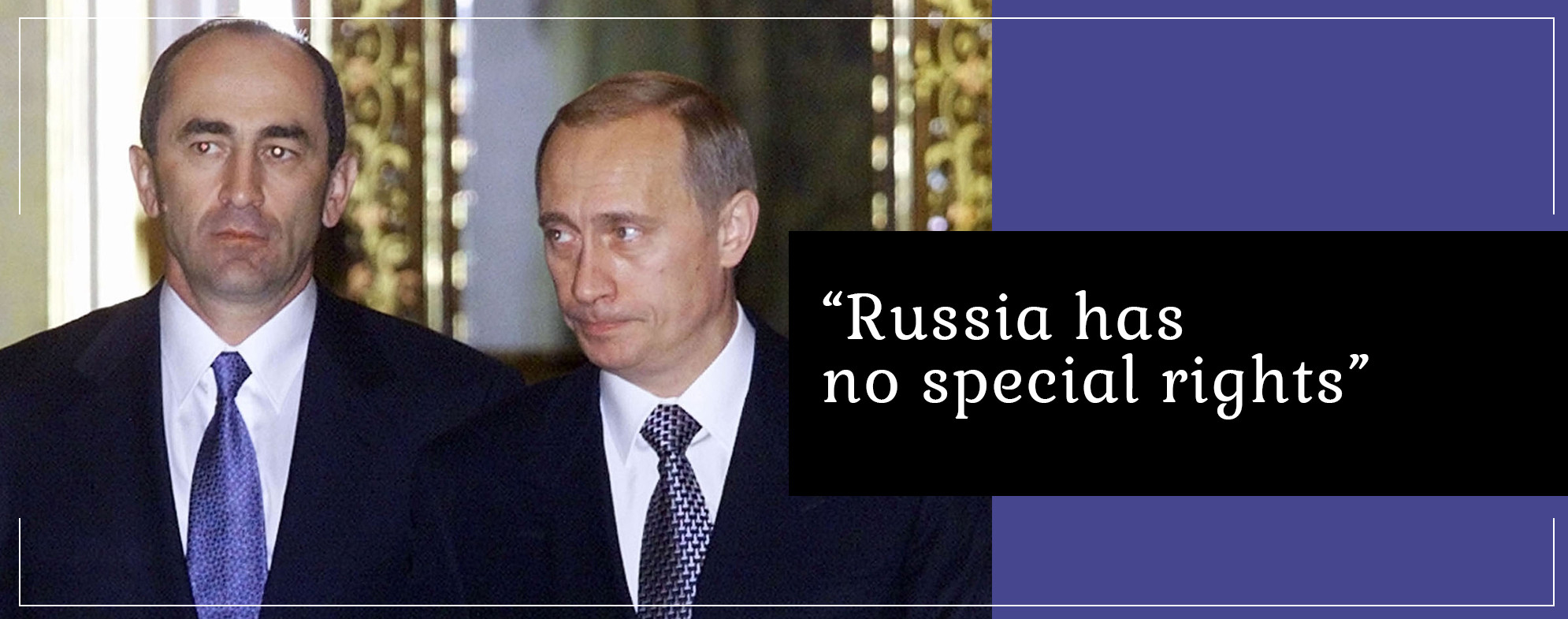
In the aftermath of the 2020 war, the popular view was that Russia “favored” Azerbaijan by not provide sufficient military and political support to Armenia. Meanwhile, 20 years before the outbreak of the Second Karabakh War, Vladimir Putin made it clear that he would take a much more pragmatic approach than his predecessor Boris Yeltsin.
A visit amid speculation
In September 2000, Armenian President Robert Kocharian paid his first official visit to Moscow. This was also the first visit of an Armenian leader to Moscow in three years - the last time Levon Ter-Petrosyan visited Moscow was in August 1997.
Despite the absence of confirmed facts about the cooling in Armenian-Russian relations, this topic appeared more and more frequently in the pages of Russian and Armenian newspapers in the first half of 2000.
In May 2000, Robert Kocharian stated:

Kocharyan also said he disagreed with the view that Russian-Armenian military-technical cooperation scared away potential Western partners. “Russian military bases in Armenia are not a new component in the South Caucasus,” the president noted.

On the eve of Kocharian’s visit to Moscow, the Russian official “Rossiyskaya Gazeta” newspaper published an article “Who is facing a choice: Yerevan or Moscow?”.

Without sensations
Those who expected sensations from the visit were left disappointed. The visit was calm and businesslike, without any sentimental manifestations of “centuries-old Armenian-Russian friendship”. At the same time, several factors indicated that already in the first year of Vladimir Putin’s presidency, Russia’s Caucasus policy had undergone significant changes, becoming more pragmatic.
In the Declaration “On Allied Interaction between Armenia and Russia Oriented Towards the 21st Century” no new approaches to Armenian-Russian relations were enshrined. In the regional context, the paragraph concerning the so-called “Caucasus Quartet” (Russia, Armenia, Georgia, and Azerbaijan) was particularly interesting. “Armenia and Russia consider the interaction of all countries in the region as the basis for strengthening security and developing cooperation in the Caucasus, attaching special importance to the constructive role of the Caucasus Quartet,” the Declaration noted. It also stated that Russia and Armenia would coordinate their foreign policy activities to implement joint or concerted actions aimed at strengthening security in the Caucasus region.
“Russia has no special rights”
During Kocharyan’s visit, Vladimir Putin made a statement regarding Russia’s role in the process of peaceful settlement of the Karabakh conflict.
For the first time since his election, the head of the Russian Federation voiced Russia’s position on this issue and approached it in an extremely pragmatic manner:


Putin also noted that in the settlement process, the parties could make various concessions and compromises, and he did not want anyone think that they were made under pressure from Russia.
In fact, Russia’s position aligned with that of the other two co-chairs of the OSCE Minsk Group, the United States and France: “We are ready to support any solution that will be found by the parties to the conflict.”
“Too many nuances”
The Russian press at that time interpreted the president’s words differently. “Kommersant” newspaper claimed that Kocharian actually failed to secure Russia’s support in the Karabakh settlement issue, while “Nezavisimaya Gazeta” strongly criticized the position of the Russian authorities.

“The visit of Armenian President Robert Kocharian to Moscow served as a kind of litmus test reflecting new trends in Russia’s Transcaucasian policy. Moscow seems to have decided to pursue an isolationist approach in its relations with the CIS countries and does not consider it necessary to hide it,” the newspaper wrote.
The author considered it no coincidence that on the same day of the meeting between Kocharian and Putin, Secretary of the Security Council of the Russian Federation, Sergey Ivanov, announced Putin’s intention to visit Baku in 2000. “There are too many nuances that are hard to ignore,” the article noted.
Ara Tadevosyan
Photos by REUTERS are used in this chapter.



